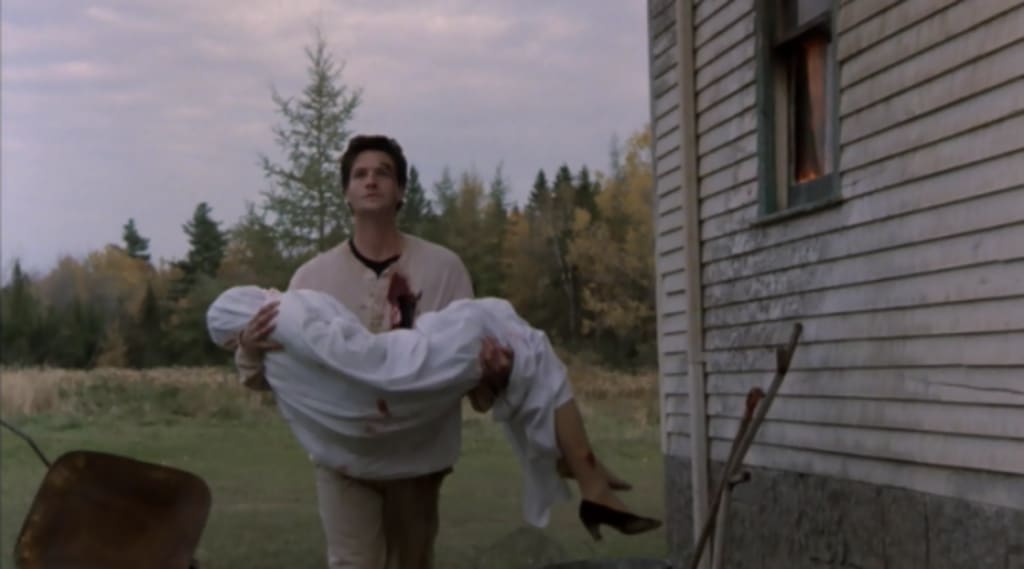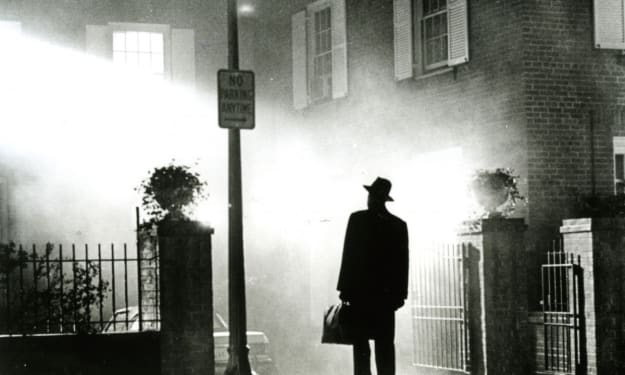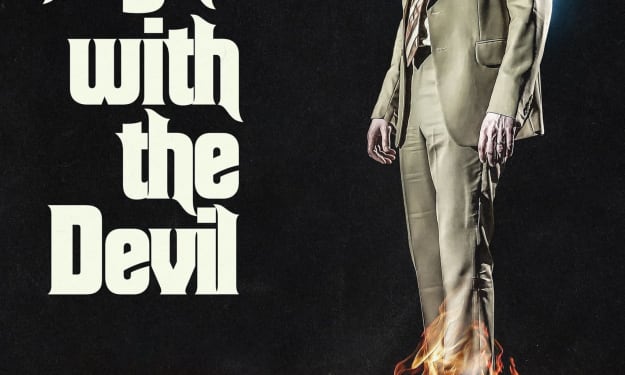
In my life I have known a handful of people that give Louis Creed some flak for choosing to bury his wife near the end of Mary Lambert's Pet Sematary. They state that you would never catch them doing this. In fact, even Lambert herself does not understand it in the commentary of her own film. She notes he is only going to make it worse. Adding to this, she states how you, the audience, need to suspend some disbelief just for this work.
I humbly disagree with all of this. Now is that to say I would bury a loved one beyond the barrier of Pet Sematary? Am I insane? Did I not watch the movie? Well, one question at a time.
Let's look at the science.
First and foremost, we need to keep in mind that Louis Creed is grieving. One study looks at complicated grief and normal grief in their relation to cognitive performance and structural brain volumes. Participants were differentiated between those with no grief, normal grief, and complicated grief. Louis just went through the loss of his son and buries him. Little Gage returns and kills Louis' neighbor, Jud. Next on Gage’s list is his mother. Louis finds the bodies, and has to defend himself from a vile, violent Gage. Hence, it is safe to say Louis fits into the complicated grief section.
Going back to the study, all participants underwent cognitive testing, and magnetic resonance imaging to measure general brain parameters. This imaging looks at white matter, gray matter, and white matter lesions. Total brain volume is defined as the sum of all three of these. Results came back showing that people with complicated grief suffered in cognitive testing, and had a smaller total brain volume.
In another study they look at individuals who did indeed suffer the loss of a loved one. Out of 38 participants, they split them up between the intensity of their grief, and then they endured neuropsychological assessments. These assessments covered measures of flexibility, inhibition, working memory, and emotional decision-making. Already you probably know where this is going. In the end, those who were terribly grief-stricken suffered in emotional decision-making, but not the other assessments. Hence, scientifically speaking, Louis Creed's behavior is not off really.
Bargaining In Grief
Let me say that the five stages of grief is not exactly accepted. It began as something for people who were terminally ill; the five stages of grief were never meant to apply to those grieving the loss of a loved one. In addition, there is a lack of peer-reviewed research for this system that so many people know of. Personally, I do feel it is a unique system to use that many people can easily comprehend, and apply to in many grief-stricken situations.
Victor Pascow: I'm sorry Louis. I'm very sorry, but don't make it worse! Don't!Louis Creed: I waited too long with Gage. But with Rachel... it will work this time! Because she just died; she died just a little while ago!
Louis is bargaining in a sense here. It is hard to say exactly how long he waited to dig up Gage. Days? Maybe a week? But he is right in that Rachel just died, merely minutes ago. Perhaps he did wait too long with Gage, and this time it will be different. Going back to the study above, Louis is incapable of good emotional-decision making right now. His own rationality has been compromised, and overtaken by his emotions. But again, this idea of burying his just-deceased wife sounds right in his own mind.
Take a look at yourself.
It is easy for you to watch the film from the comfort of the couch in your own home. I hope you have never suffered the loss of a loved one like a child or your spouse. As you watch the film you are not the one grieving though, hence, it is easy to learn the lesson and tell Louis he is crazy for wanting to bury his wife. Right now, your emotional decision-making is perfectly fine. Your mental state is not compromised. It is not that far off from telling a grieving person that "it's going to be okay." In the future, yes, it probably is. Keep in mind, that is now how they feel at the moment. How can things possibly get any better at this point? That's how they see it.
On an objective level, I will say what Louis did is completely wrong. If anything, given the director's comments, and many audiences' feedback, this is a chance to learn a thing or two about empathy. I dare say I might do the same thing as Louis. I know myself when I am emotional, and I have dealt with loss before. Is he crazy for wanting to bury his wife, and bring her back, given everything that just happened? To some degree yes, but is it crazy to want your dead loved one back? And I don't mean wanting them back through the use of the burial grounds. What I mean to say is, the mere idea of wanting your dead loved returned to you, is perfectly normal.
Sometimes Dead is Better
This all got me thinking if the ending should have been changed. No I don't mean the original ending, which does not include Rachel in all her grotesqueness. I mean that, should they have changed the ending of Louis burying his wife and instead have him accept it, and move on? After all, I feel this is what some people kind of wanted.
I have to argue no! Pet Sematary is hardly here to teach a lesson. This is not a public service announcement or a Disney film. No, for it is a statement on death itself in how we deal with it, talk about it, and in hopes... accept it. Death is as old as humankind itself, yet we still do not know what to do with it, or anything about it. It appears originally that Jud has some idea, but this is misplaced. We expect the doctor, Louis Creed, who deals with death to possibly understand. Then we have Rachel, a grown woman, who still cannot accept the idea and discussion of death in her own household. If anything, the ending sums up humanity's failure to accept death and actually discuss it. In fact, if there is a lesson, that is the lesson. No your family is going to come back to haunt you. But discuss death with your loved ones, that way, when the time comes, it doesn't overtake you to such a degree as it did Louis Creed.
About the Creator
Skyler
Full-time worker, history student and an avid comic book nerd.






Comments
There are no comments for this story
Be the first to respond and start the conversation.